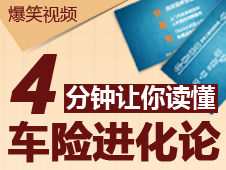Alibaba, Tencent, Ping An JV: Insuring Failure 阿里巴巴、腾讯和平安联手网上卖保险
 I was quite intrigued when buzz first emerged last week about a new tie-up between Internet leaders Alibaba and Tencent (HKEx: 700) and insurance giant Ping An (HKEx: 2318; Shanghai: 601318), hoping we might see an innovative financial services tie-up between these 3 industry titans. So it came as somewhat of a disappointment when reports disclosed the companies would pool resources to simply launch a new online insurance joint venture. (English article; Chinese article)
I was quite intrigued when buzz first emerged last week about a new tie-up between Internet leaders Alibaba and Tencent (HKEx: 700) and insurance giant Ping An (HKEx: 2318; Shanghai: 601318), hoping we might see an innovative financial services tie-up between these 3 industry titans. So it came as somewhat of a disappointment when reports disclosed the companies would pool resources to simply launch a new online insurance joint venture. (English article; Chinese article)
I certainly don’t want to imply that companies like Tencent, Alibaba and Ping An shouldn’t always be looking for new business opportunities, and this one certainly seems to combine a lot of their strengths. But at the same time, this particular venture looks destined for very lackluster results for reasons that I’ll explain shortly.
First let’s look at the news, which saw Chinese media having fun with the fact that the new venture would bring together 3 of China’s biggest “horses,” since Tencent, Alibaba and Ping An are all headed by well-known men surnamed Ma, which means “horse” in Chinese. Industry followers will know that the 3 horses involved are Jack Ma of Alibaba, Pony Ma of Tencent, and Ping An’s Ma Mingzhe.
Ma Mingzhe said the new venture, which was still in the process of being set up, would aim to take advantage of Tencent’s and Alibaba’s big Internet platforms in online games and e-commerce, respectively, to try to sell traditional and innovative new types of policies to their millions of users. He mentioned that the venture could perhaps try to create new types of online game insurance, targeting Tencent users, and insurance against fake goods, presumably targeting the millions of consumers who buy goods on Alibaba’s Taobao and TMall platforms.
I should applaud these 3 companies for this new initiative, which certainly looks innovative and would offer products that have probably never been seen anywhere else in the world. The only problem is, there’s a reason these products have yet to be seen anywhere else in the world: there’s no demand for them.
I’m not an expert on the insurance industry, but demographic studies would probably show that the average buyer of insurance is an older adult, probably around 45 years old. Such people are typically more concerned about things like life and health insurance, since they often have families that they want to protect in case of accidents. Such older adults also typically have enough disposable income to spend on insurance. That demographic is far different from the average Tencent customer, who is probably around 22 or 23 and probably seldom thinks of something like insurance, or the average Alibaba user, who probably is a little bit older.
But at an even more fundamental level, insurance simply isn’t something that can be sold online effectively in China due to the newness of the product in the market. The average Chinese consumer has relatively little understanding of insurance and why it makes economic sense to buy it, with most Chinese considering such products a waste of money since they don’t provide any immediate returns for the investment.
As such, selling insurance to Chinese consumers requires a huge amount of education — something that only a customer representative can offer, and a process that usually involves hours of personal meetings and communication before a deal is signed. That kind of education process is totally absent in the online environment, and few if any of Tencent or Alibaba’s young users are likely to take the time to educate themselves on the issue. For all these reasons, this initiative, while innovative, is almost guaranteed to fail and I wouldn’t expect it to ever gain any meaningful business.
Bottom line: A new online insurance joint venture between Alibaba, Tencent and Ping An is almost guaranteed to fail due to poor prospects for online insurance sales.
Related postings 相关文章:
